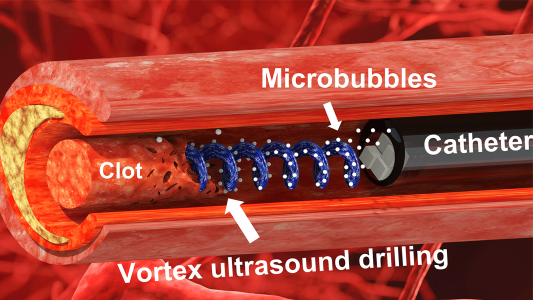By splitting colon cancer patients’ chemotherapy into two parts — one delivered before surgery and one after it — European researchers reduced their risk of recurrence by 28% compared to patients who received all of their chemo after surgery.
“We believe that our results could transform how we approach colon cancer in the clinic,” said trial co-leader Laura Magill from the University of Birmingham.
Up to 40% of people treated for colon cancer experience a recurrence.
The challenge: Colon cancer is cancer that starts in the lower end of the digestive tract. It’s the fourth most common cancer in the US, and the standard treatment is surgery to remove the affected area of the bowel, potentially followed by chemotherapy or radiation therapy.
If the cancer is caught and treated before it has a chance to spread, the five-year survival rate for patients is 90%. However, beating the disease once often isn’t enough — 30-40% of people treated for colon cancer experience a recurrence.
The trial: Past studies with other types of cancer have suggested that delivering chemo before surgery can lead to better outcomes, so Cancer Research UK funded the FOxTROT trial to see if the approach could help prevent recurrence in colon cancer patients.
More than 1,000 patients with colon cancer that hadn’t spread beyond nearby tissues and lymph nodes enrolled in the trial. Nearly 700 received 6 weeks of chemotherapy before surgery and 18 weeks of it after. The rest received the full 24 weeks of chemo after surgery.
“Timing is everything when it comes to treating colon cancer.”
Matthew Seymour
The results: The FOxTROT team followed up with participants for 2 years after treatment and discovered that the risk of recurrence during that time was 28% lower for the patients who’d had their surgery flanked by chemo.
“Timing is everything when it comes to treating colon cancer,” said trial co-leader Matthew Seymour from the University of Leeds. “The simple act of bringing forward chemotherapy, giving it before instead of after surgery, delivers some remarkable results.”
The big picture: The ability to reduce colon cancer recurrence risk is already a big deal, but the fact that this approach doesn’t require any additional treatment or the approval of any new meds is huge.
“In many parts of the world cancer treatments can be prohibitively expensive,” said lead investigator Dion Morton from the University of Birmingham. “We wanted to go in the opposite direction, testing a treatment that could be used on the widest possible group of patients.”
“Thanks to funding from Cancer Research UK, doctors in countries around the world will now be able to put these findings into clinical practice, saving many thousands of lives,” he continued.
We’d love to hear from you! If you have a comment about this article or if you have a tip for a future Freethink story, please email us at [email protected].






